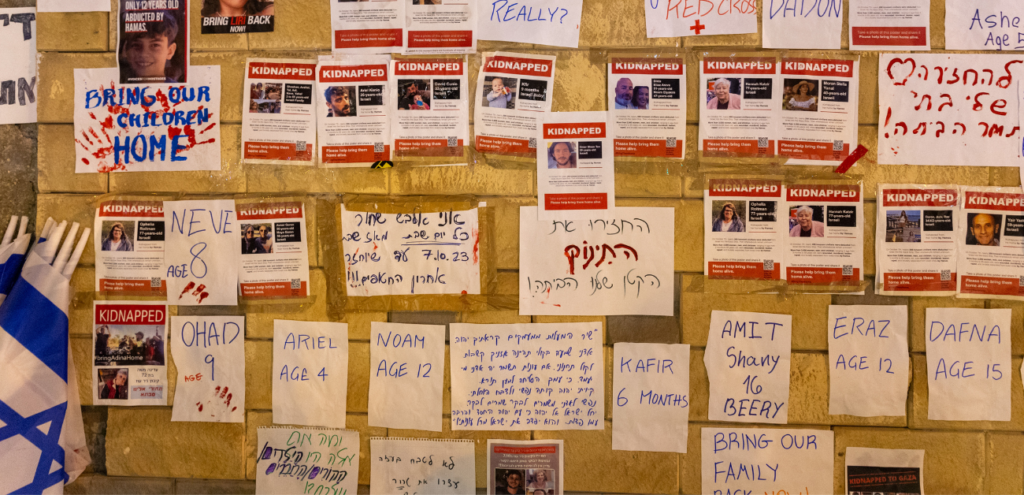Did you know that the hostages are not exclusively Israeli? As is often the case regarding the Middle East, not everyone knows the nuance.
In January, Israel and Hamas reached a tenuous hostages-for-ceasefire deal, with hopes for a staggered release of people held since the attacks of Oct. 7, 2023. As of Chronicle press time, Hamas still held 94 of the 251 hostages taken on Oct. 7, 2023, according to CNN and the Israeli government. The Israelis believe about 60 of those held are still alive, according to the Washington Post.
About 1,200 men, women and children – including 46 Americans and citizens of more than 30 countries – were slaughtered by Hamas on Oct. 7, 2023, according to the U.S. State Department.
A common misconception is that Hamas only took Israeli nationals hostage, but that’s not the case. Twelve Americans and dozens of citizens of Thailand were taken hostage, among others.
American hostages
There are seven American hostages – three believed to be still alive – held somewhere in Gaza, according to the Washington Post, as of Chronicle press time. One is Omer Neutra, born in Manhattan a month after the attacks of Sept. 11, 2001. After high school, he planned to attend Binghamton University in New York; he took a gap year in Israel instead, according to AJC. He wanted to be with Israelis his age, so he signed up for a pre-military program that serves Israeli high school graduates. Neutra then decided to serve in the Israeli army and was stationed at the Gaza border in a tank.
“He said, ‘I think I should do this. I want to serve, and I want to do my share,’” said his mother, Orna, when she visited Congregation Shalom in Fox Point last summer. In December, the Israeli military announced that Omer died on Oct. 7, 2023.
Foreign workers
Of the more than 200 hostages taken by Hamas and its allies on Oct. 7, 2023, more than half held foreign passports, including more than 50 Thai nationals, according to Reuters and the state of Israel.
Foreign workers from Thailand have worked for years at Israeli farms, including some near the Gaza Strip. Many come to send income home to families, or to build homes, pay off loans, or educate their children, according to the Times of Israel.



